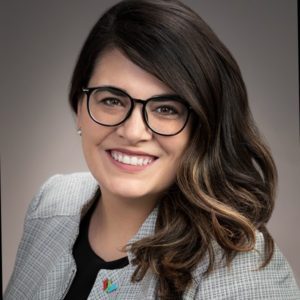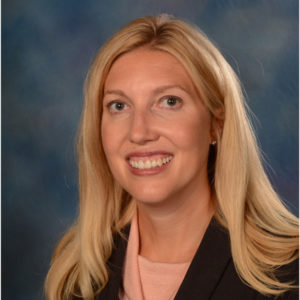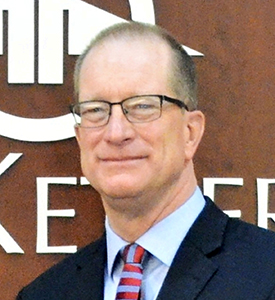Member Updates
Jeff Weckbach Named to OCMA Board
At OCMA’s Annual Business Meeting held in Columbus on April 7, 2023, Jeff Weckbach was named to the Ohio City/County Management Association Board. Jeff has served as the Township Administrator in Colerain Township near Cincinnati since September 2022.
Prior to his role as Township Administrator, Jeff served as the Assistant Administrator in Colerain from 2018 to 2022. He also worked for Hamilton County from 2014 to 2018 as a Budget Analyst and a Senior Policy Manager.
Jeff has a Masters in Public Administration from Northern Illinois University and a B.A. from Northern Kentucky University.
OCMA Bylaw Updates Adopted at Annual Meeting
OCMA members approved bylaw changes at the annual business meeting held at the OCMA Conference on April 7th. Changes clarify membership definitions, and introduce a new category of membership for persons retired from service in local government. Additional changes include aligning the requirements to become OCMA President and Secretary-Treasurer with current practices, and introducing changes intended to allow Members in Transition to continue serving as Officers with OCMA.
A full marked-up version of the proposed bylaw changes can be downloaded here.
The changes include:
- Definitions of Full and Affiliate Membership. OCMA currently permits all persons who are eligible to hold full or associate membership in ICMA to be full members in OCMA. However, at some point ICMA updated their membership definitions to allow almost anyone working in local government, including elected officials, to join ICMA. Additionally, because both OCMA and ICMA utilize both full and affiliate membership categories, but with different definitions, the opportunity for confusion about which OCMA membership category a person should join existed. The proposed changes are intended to separate the OCMA and ICMA membership definitions by removing the reference within the current OCMA Full Member category to ICMA’s definitions for eligibility.
- The proposed bylaws clarify that Members in Transition be treated as Full Members of OCMA. This change would allow officers within OCMA who become MITs to continue in their service on the OCMA Board so long as they maintain eligibility to be full members in OCMA.
- Affiliate membership is proposed to be reserved for persons working for non-commercial entities, include academia, who have an interest in local government in Ohio, or at other levels of government in Ohio.
- A new membership category for retired members is proposed to allow individuals who are no longer employed on a full-time basis in local government, but who have not been approved for lifetime membership in OCMA, to join the association. Unlike Lifetime members, retired members are not exempt from paying dues in the bylaws.
- The name of the Student Member category is proposed to change to Emerging Leader and to be broadened to allow interns working in local government to join. Student members are currently able to join OCMA at no annual cost, and this change would, in combination with language in Art III Section 8, extend this membership benefit to persons working as interns in local government.
- Changing language about eligibility to become President of OCMA to clarify that all Full Members of OCMA are eligible to hold this office. This formally would allow assistants and and non-CAOs to hold the office of President, and aligns language within the bylaws with recent past practices that have seen assistants serve as President.
- Removing language that limited the Secretary-Treasurer to serving two terms. The Treasurer is appointed by the OCMA Board, serving two year terms designed to provide stability within this position as positions on the board change. Amending this language will align the bylaws with current practices.
- Updating language that stipulates how frequently meetings of the general membership are held to comport with OCMA now only having one annual conference. This language change would further allow a business meeting to happen virtually by removing the requirement that it occur as part of the annual conference.
Kettering city manager called ‘pillar’ for peers as long tenure nears end
Mark Schwieterman’s employment with the city of Kettering spans five different decades, during which he’s become what one fellow city manager called “a pillar” for municipal leaders statewide.
The end of Schwieterman’s 34 years with the city — more than 16 as its top administrator — ends Saturday. His departure closes a chapter that those who have worked closely with him say has been marked by successes that far outweigh failures.
The redevelopment of what is now Kettering Business Park, the modernization of Kettering’s fire and police facilities, and job growth at the Miami Valley Research Park all came under Schwieterman’s leadership, several officials have said.

Kettering “acknowledges the work, the foresight and the unwavering grit” Schwieterman has displayed to improve the city and “the entire region without hesitation or complaint,” according to a city council proclamation approved recently.
“Mark has been a pillar within the local government management profession, within the Dayton region and throughout Ohio,” longtime Oakwood City Manager Norbert Klopsch said in an email.
Schwieterman has served as treasurer for the Ohio City/County Managers Association since 2012, according to its website.









